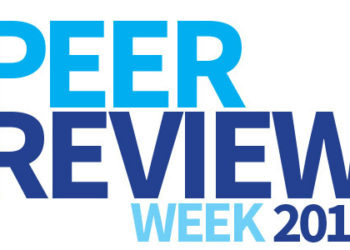I recently attended an excellent conference — the third Researcher to Reader Conference, which was held in London in February, and was, in my view, a resounding success. Why a success? Because I found myself engaged, annoyed, irritated, and at times in full agreement with all being said. The opening keynote was from Alison Mudditt, recently installed as CEO of PLOS, who set the tone and theme for the conference – openness. Her talk was entitled Changing the Culture of Research: It’s Everyone’s Problem, and focused on openness through the need to improve transparency, reproducibility and efficiency of scientific research, and how publishers may play a trusted role in this ecosystem. It is a participatory conference, with a range of workshops that you can join. I joined a diversity workshop and it was fascinating, productive, and well-facilitated by Nancy Roberts of Business Inclusivity and Phill Jones of Digital Science. There were other excellent workshops, which addressed open science responsibilities, open access communications and standards, the metadata lifecycle, and open data sharing. The latter workshop focused on the Belmont Forum e-Infrastructures Data Management Project, and sustainable open access to research data.

As the theme of openness continued through the two days of the conference, I realized that while tackling openness – rather than open access — feels right, there was little to no acknowledgement of cultural differences among fields. It was as if large, well-funded scientific and medical fields matter more because there is more money in the system — yes, quite the revelation.
It was almost 60 years ago when C. P. Snow, an English physicist, civil servant and novelist, gave a lecture at Cambridge University entitled The Two Cultures and the Scientific Revolution, subsequently published as a best-selling book. Snow’s thesis was that “the intellectual life of the whole of Western Society is increasingly being split into two polar groups,” with scientists on the one hand and humanities scholars on the other. He blamed humanities scholars as much as he did scientists, indicating that humanities scholars did not try to understand science, and by the same token scientists assert the dominance of scientific thinking and show little interest in the culture of the humanities. This dynamic has hardened over time, with the apparent reasons for this hardening boiling down to elemental conversations about funding. The truth is the humanities, and I include mathematics in the same breath here, is not funded in the way science is funded. At the American Mathematical Society, where I work, perhaps only 30% of published authors in our journals are directly funded by a funder such as the NSF.
Open access models, and indeed openness as a concept, rely on funding for success. The reality of openness is that one can’t equate the word open with free. Someone along the way has to pay for the research and the publication of that research, recognizing the real costs involved in a thriving information ecosystem. Unfortunately, in a world driven by science, where rich private funders and governments are prepared to pay for science, other cultures — the humanities, social science and math research – are largely left out of the loop. In my world of mathematics there is a good deal of willingness to consider openness, and in fact through the long-term acceptance of the preprint server arXiv, one could say that early versions of research are shared, with publication of that research in a final recorded form still a marker of success. But apart from a vocal minority, mathematicians will tell you that what they care about is being able to do their work, and that openness, and indeed open access, is way down on the priority list of concerns.
While we all want to embrace openness, we cannot say we are being successful unless we understand that it should not be science, and the money behind science, that should inform how other disciplines and cultures proceed. Gold open access as a business model for publishing, for example, simply does not work for many fields, and yet this is where big publishers such as Springer Nature are placing their bets for the future of the publishing business. The implication of accepting that openness is tied to funding is that we may see a further widening between well-funded scientific and medical fields and the social sciences, humanities and mathematics. I would argue that the future of interdisciplinary research is at risk. Let’s take geriatrics and gerontology as an example. On the one hand, the medical and scientific aspects of aging are well funded, with open research and gold open access publishing important as research thrives. On the other hand, what will happen to social research on aging (gerontology), if funding and openness is increasingly sidelined. Is this in fact a path to a deepening divide of the “two cultures”? We need to investigate more richly, and more deeply how scholars in a wide range of fields work, and how openness may be applied to their conditions and motivations.
When I attend conferences, however enjoyable and stimulating they may be, such as the Researcher to Reader Conference, I want to see that thought has been given to how to address divisions in the “Two Cultures” — which C. P. Snow would likely be appalled to find are as apparent as they ever were.
Discussion
11 Thoughts on "Openness and The Two Cultures"
Times have changed from when scholars would pen their manuscripts and correspondence to share with colleagues for many reasons. The idea of “disciplines” and academic “departments” which offered collegiality and yet created enclaves has grown, evolved and devolved. Given the current environment, what needs to change in order to reverse what is described here as an increasing divide?
Can we transcend the academic ululations and, if so, how?
There is an old joke that goes: What is the dean’s favorite department on any campus? Math! Why? All that is needed for research is chalk, a blackboard and an eraser!
But, you are right. Funding drives research and open does not mean free! As argued – there is no free lunch!
Unfortunately, the result of your observations is that until society decides that everything cannot immediately be monetized we will all suffer in the long run.
There are ways in which openness is being encouraged in the humanities. I would point to Lever Press (https://www.leverpress.org/) that values, “producing the highest quality scholarship in an economically sustainable model, embodying and reflecting the values of the liberal arts, and
leading the way in establishing best practices for born-digital, peer reviewed, open access monograph publishing.” The Press is funded by a group of liberal arts college libraries in the U.S. A liberal arts college education is one possible solution to Snow’s two cultures problem and the libraries at those colleges decision to fund this project is an example of institutions putting “skin in the game” to help, albeit in a small way, find balance in open scholarship.
Thanks for a thought provoking post, Robert. So loud is the voice of science and medicine in the research sphere, that it was not until my postgrad level I realized the rigors of research was similar for other disciplines. One way out I see, and you already alluded to is iterative/cross disciplinary research.
Thanks again for an enlightening write up.
I
There’s no reason to expect openness to be practiced the same way in HSS as STEM nor is there any need. Why can’t the different disciplines just pursue their own paths?
In theory, yes. In practice, it has been my experience that each academic researcher believes that the entire world of research works in the same way as their individual field, and that the solutions that work best for that field are universal and should be followed by all. This is usually reinforced by policy makers who are keen on reducing nuance in order to simplify policies into “one size fits all” requirements.
Thanks, Robert, for the perspective and highlighting these issues. As you note, they’re critical to address as the solutions to “big problems” (an aging population, climate change, etc.) are inherently complex and multidisciplinary. There is a strong desire for greater openness from many HSS scholars and as a result, there are already a range of creative alternatives to the pure Gold APC model for other fields (and for books) including the Open Library of Humanities, Knowledge Unlatched, Luminos at UC Press and various experiments at MIT Press. That said, those of us in the OA world need to recognize the constraints of APCs which are real for the sciences too (science fields that don’t have big grants, early career researchers, researchers in the Global South to name a few). Greater access to knowledge has been a huge achievement, but in so doing we have inadvertently created barriers to participation for some (not to mention the cost of the APC model for libraries and funders – another topic at R2R). Greater openness and transparency are essential if we are to address the problems of inefficiency, bias and irreproducibility in the research enterprise, but we need to continue to innovate collaboratively to improve business models.
Well said, Robert. Indeed, what scholar is not in favour of openness. Sharing knowledge is the whole point. Scholarly journals undertake the critical work of transforming scholars from so many intellectual buskers to members of an organized community of peer-certified contributors to knowledge. That work has a cost that must continue to be met across all disciplines if knowledge production is to be sustained.
I find the choice of the term “busker” interesting and the idea that academic journals are the magic sauce that creates an organized community which seems to give credit, more than deserved, for the publishers of such journals, particularly when there are increasing venues for intellectual buskers whether within or outside of academia. “Organized” may be a euphemism, perhaps more tongue in cheek for an intellectual melee equivalent to sales on Black Friday at US department stores.
Thanks, Robert, your point about interdisciplinary research is an important reminder of the need to protect a space for risk-taking, innovation, and emerging areas of research.
I have produced a list of several hundred social science journals in various fields that are reputable, OA, free to authors and readers or a few have an APC up to $500. Use these journal more, feed them good content, and we truly have a revolution in publishing underway. The funding models are various, but they certainly do not involve pleasing shareholders or company execs. [except for a small number with the Big Five] . https://simonbatterbury.wordpress.com/2015/10/25/list-of-decent-open-access-journals/

